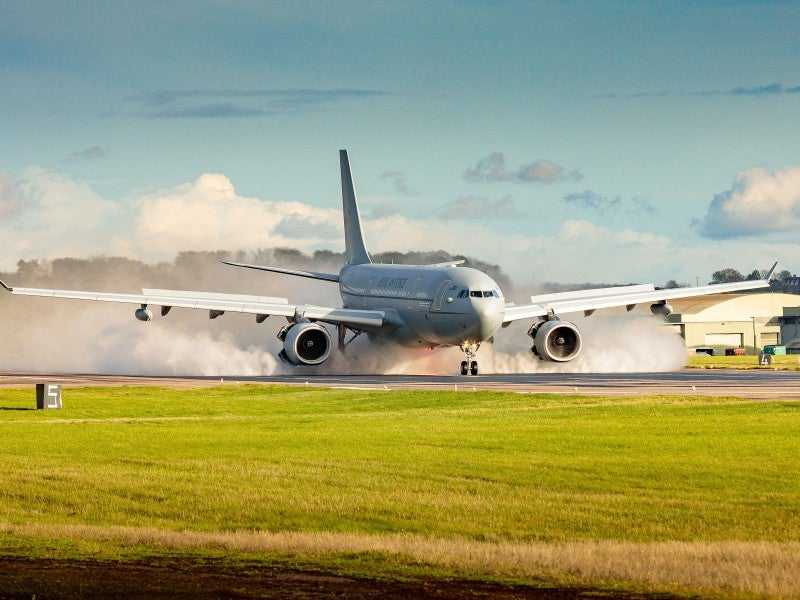
The UK Royal Air Force (RAF) has successfully carried out the first air-to-air refuelling test using sustainable aviation fuel (SAF) blended with regular jet fuel.
As part of the latest flight demonstration, an RAF’s Voyager aircraft, an A330’s military variant, performed the air-to-air transfer of fuel to an RAF’s Typhoon fighter jet and a C-130 Hercules tactical transport aircraft.
The latest test builds on the initial SAF flight demonstration with Voyager, which was conducted in November last year.
This initial test involved the use of 100% SAF for the 90-minute-long flight by Voyager. The remaining fuel from this test was blended with the regular fuel at around 46%-48%.
To ensure the safety and effectiveness of the latest test, the RAF team worked in close coordination with Air BP to re-certify the blended fuel in accordance with the required standards.
UK RAF supply project manager squadron leader Evans said: “We have learnt a great deal during this trial and now have confidence in our ability to use blends of SAF now and in the future.
How well do you really know your competitors?
Access the most comprehensive Company Profiles on the market, powered by GlobalData. Save hours of research. Gain competitive edge.

Thank you!
Your download email will arrive shortly
Not ready to buy yet? Download a free sample
We are confident about the unique quality of our Company Profiles. However, we want you to make the most beneficial decision for your business, so we offer a free sample that you can download by submitting the below form
By GlobalData“The trial proved there is no detriment to performance as we strive towards reduced emissions targets. This was a first for both Typhoon and Hercules and we believe that we are the first Air Force to conduct an air-to-air refuel operation with a SAF blend at this level (46%-48%).”
The SAF is made up of waste-based sustainable feedstocks to minimise up to 80% of the lifecycle carbon emissions made by an aircraft, in comparison to traditional jet fuel.
Defence Minister Baroness Goldie said: “With potential benefits for the environment and operational resilience, this important work alongside expert defence industry and scientific teams in the UK is crucial for RAF’s future resilience.”



